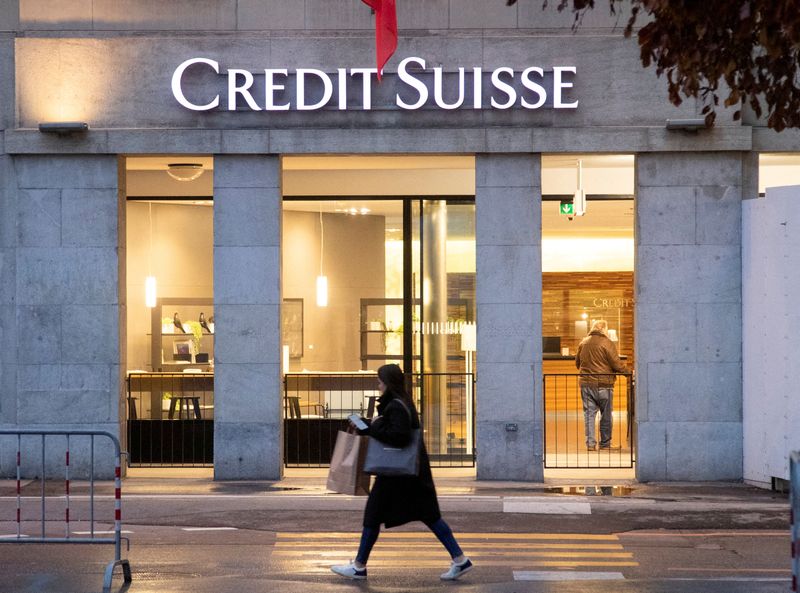European companies are experiencing a shortage of capital
2022.12.06 02:21
[ad_1]

European companies are experiencing a shortage of capital
Budrigannews.com – As cash-hungry businesses, such as Swiss lender Credit Suisse, look to equity markets to repair their balance sheets and fund costly turnarounds, European investors are being asked to contribute to a series of capital increases.
Still, shareholders sometimes have to choose between doubling down on their bets on a company or accepting dilution and looking for value elsewhere, despite the possibility of purchasing shares at a discount.
Alex Watkins, co-head of Equity Capital Markets (ECM) in Europe, the Middle East, and Africa (EMEA) at JPMorgan (NYSE:), stated, “It is often easier for investors to put money into a rights issue than in a company they are less familiar with.”
He stated, “This is a test to see if shareholders want to support a company they already know well.”
EMEA businesses have raised a total of 34.99 billion euros (33,3 billion euros) through capital increases this year, in contrast to a lack of IPOs.
Even though this is the lowest level in five years and more than 50% lower than the 70 billion euros raised a year ago, 2019 volumes are still comparable to those prior to the pandemic.
Societe Generale and Credit Suisse (OTC:) As they attempt to raise 1.2 billion euros and 4 billion Swiss francs, ALD Automotive, the company that leases cars, is the most recent to face challenging markets.
Companies in Europe are dealing with persistent inflation and the effects of the energy crisis at the same time that banks like scandal-plagued Credit Suisse and Italian lender Monte dei Paschi are cutting costs as part of their efforts to turn things around. As a result, they are rushing to get money from investors.
Meanwhile, poll data from Bank of America (NYSE:) indicate that fund managers’ cash holdings are near their highest level in nearly 21 years.
Subsequent to floating near the arrangement membership cost, shares in Credit Suisse have returned quickly after the bank consoled markets that client outpourings were being switched, offering the bank financiers a murmur of help.
Andreas Thomae, a corporate governance specialist at Deka Investment, a small stakeholder in the Swiss bank, stated, “It’s understandable if some investors are reluctant to invest in the capital increase.”
He went on to say, “On the other hand, it’s a very favorable transaction for shareholders, which also prices in the risk of the restructuring failing – otherwise, the price would be much higher.”
Minority shareholders only accepted a tenth of Monte Dei Paschi’s rights offer of 2.5 billion euros earlier in the autumn, leaving sub-underwriting investors to acquire the majority of the non-covered paper.
After investors rejected the cash call in July, the banking syndicate for Italian energy services company Saipem’s 2-billion-euro cap hike was left with roughly a third of the offer.
“On rights issues, we don’t have a general position. “It’s case by case,” said Marc Festa, a portfolio manager at Alken Asset Management. Since ALD Automotive was listed on Societe Generale in 2017, Alken Asset Management has invested in the company.
The London investment firm stated that it would subscribe to ALD Automotive’s cash call to help finance a 4.9 billion euro partnership with LeasePlan, which is backed by TDR Capital.
Festa stated, “We think the acquisition of LeasePlan is a good strategic move to consolidate the European car rental market.”
In spite of the possibility that LeasePlan shareholders will dump shares following the lock-up period, which could have a negative impact on the stock, Indépendance et Expansion AM president William Higgons stated that his fund would also participate in the rights offer.
Higgons stated, “The return on equity of ALD is rather high, so it’s a good business to be in,” noting that automobile ownership is no longer as popular. As a long-term investor, I believe I will be correct one day.”
Festa and Higgons were both skeptical that there would be a lot of capital-raising activity in the coming year, arguing that businesses are generally well-funded despite the uncertainty of the economy.
Watkins stated that “right issue volumes have been relatively low this year,” and that “most of the companies that issued new shares were already in need of cash prior to recent volatility.”
He added, “However, the market may see more firms turn to shareholders for funding given the changing outlook and rising cost of debt.”
[ad_2]







